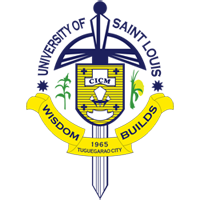
“The direction towards an effective convergence of technology and instruction can only be done if teachers are exposed to such convergence,” Dr. Therese May Alejandrino, School of Education, Arts and Sciences (SEAS) dean, said in relation to the new teaching and learning platforms engaged in by teachers in the department.
The school year 2016-2017 saw the introduction and intensification of Massive Open Online Courses (MOOCs), through Coursera, and webinars among SEAS instructors for their professional development.
Coursera, founded by Stanford professors – Andrew Ng and Daphne Koller, offers online courses using education-focused technology through its partnership with universities and organizations all over the world.
Four SEAS English instructors, Mr. Jervis Paul Canonio, Mr. Kyle Espiritu, Ms. Sarah Ferrer, and Mr. Julius Viernes, completed the online courses, “Art of Poetry” of Boston University and “English for Journalism” of the University of Pennsylvania. The teachers received certificates of completion from the US Embassy, US Department of State. Some English major students also completed the same online courses.
Meanwhile, the webinar series the English faculty participated in was made possible through the US Embassy, Department of State, under its English Language Programs. The series was facilitated by the American English Language (EL) Fellow, Ms. Cerise Santoro.
Mrs. Anjanette Batulan, Languages Department head, Mr. Jervis Paul Canonio, Mr. Kyle Espiritu, Mr. Michael John Maribbay, Mr. Jose Mari Melad, Mr. Bryan Racuya, and Mr. Julius Viernes completed the webinar series and received their certificates from the US Department of State. Some High School teachers also joined the group during the webinars.
Topics in the two-month webinars were on: a) Unraveling the Mystery of Academic Writing; b) Fostering Communication through Gaming: Tools and Strategies; c) Fostering Autonomy: Tips and Techniques for Encouraging Independent Language Learning; d) Peer Observation for Professional Development; e) Speak up! Activities for Increasing Student Time; f) Out of Your Seat Grammar (Live Webinar Series); and, g) Teaching Today’s Learners: Alternative Assessments and Rubrics.

Webinar participants during a live session on “Out of Your Seat Grammar”
“The online course is a virtual session yet it becomes realistic through live discussions from expert speakers. Further, learning becomes highly contextualized among participants since an assigned facilitator would lead intellectual summation of ideas after the session,” shared Mr. Espiritu.
“Online course is practical and very useful to working professionals like us because we can find our most convenient time in studying and answering the prepared modules and tasks. With a laptop or a smartphone plus a good internet connection, accompanied with love and interest in the course, one can become a certified MOOCer.”
Meanwhile, Mrs. Batulan said, “A webinar is just like a seminar or training that is presented via the internet. It is a one-way presentation of the instructor or speaker to the participants. On the participants’ end, webinars are very popular because they are inexpensive and very convenient as no one has to travel to get to the meeting.”
The webinar sessions consisted of two modes. With the arrangements made by Ms. Santoro, the webinar participants were able to have access on the recorded and live webinar sessions.
“The recorded webinar sessions were really more convenient because we just needed a big TV screen or projector to watch and listen to the speakers. Recorded as such, we had the opportunity to control the pacing, select the topics which we deemed applicable for us, and we had the chance to raise our queries and interact with one another. The live online webinar, on the other hand, was more exciting as we were exposed to the real experience of being connected with a lot of people from different parts of the world,” Mrs. Batulan further said.
Insights into MOOCs and webinars
“Online course is one of the hallmarks of educational shift. I’m glad to say that my involvement in the Massive Open Online Course and live webinars had opened a lot of avenues for learning new things in teaching pedagogies,” Mr. Espiritu said.
Mrs. Batulan, on the other hand, concluded that the webinar sessions offered great opportunities for the English teachers to get to know new educators from all around the world and to learn various topics and updates in English language teaching.
Online learning advocacy
As of June 2017, some SEAS instructors are finishing other international online courses that are aligned with the courses they are teaching. Most certificates are obtained through the financial assistance of Coursera and its university-partners.
Dr. Alejandrino also completed some online courses: “English for Journalism,” offered by University of Pennsylvania; “Influencing People” and “Leading Teams,” both by Ross School of Business, University of Michigan; and “Assessment and Teaching of 21st c. Skills,” by Melbourne Graduate School of Education, University of Melbourne.
Dr. Alejandrino believes that teacher-leaders have to accept that learning platforms can no longer be limited to the conventional learning opportunities inside the classroom. Thus, according to her, teacher-leaders should be open for training on how to use online learning platforms to facilitate learning even beyond the classroom.

Sample certificate from the US Department of State

